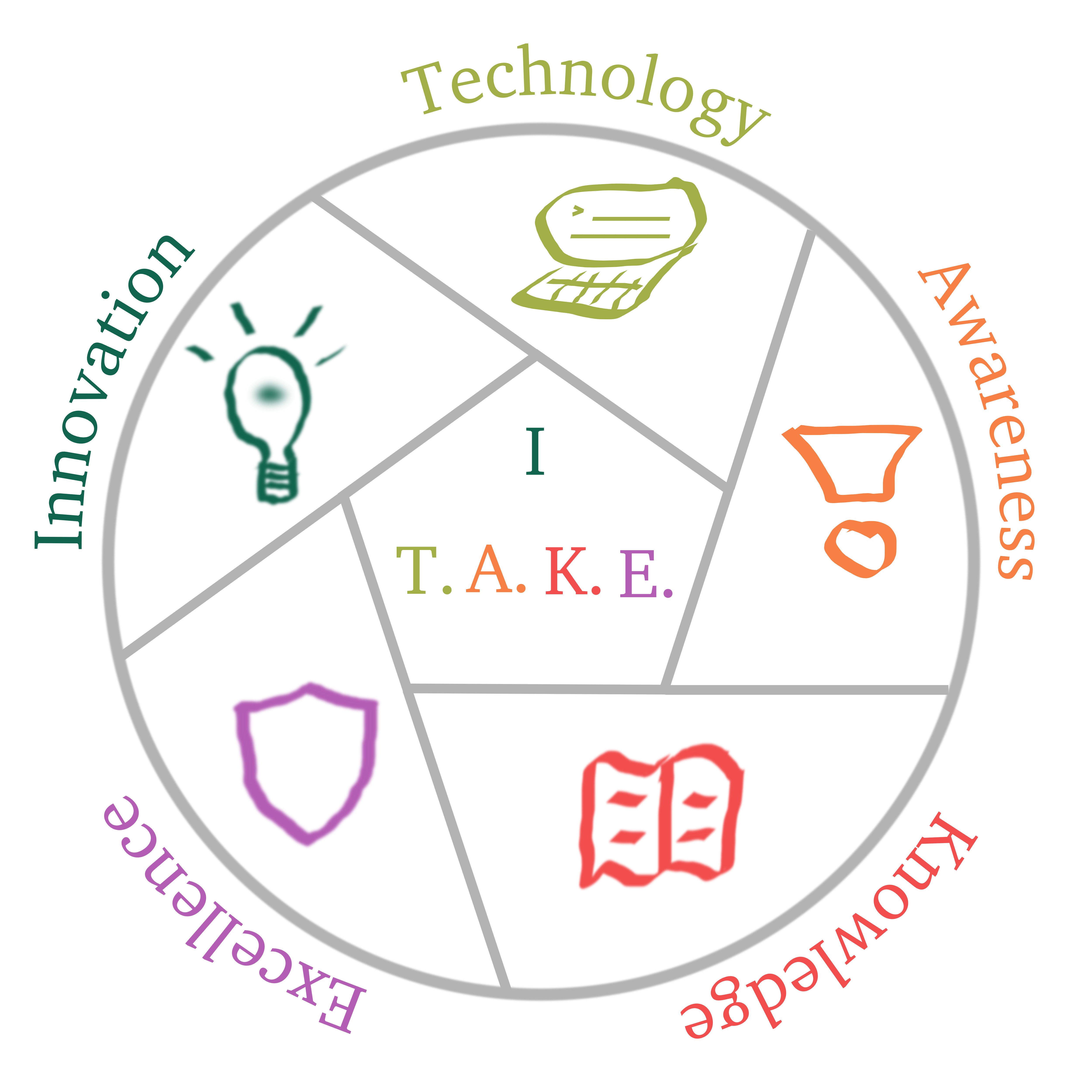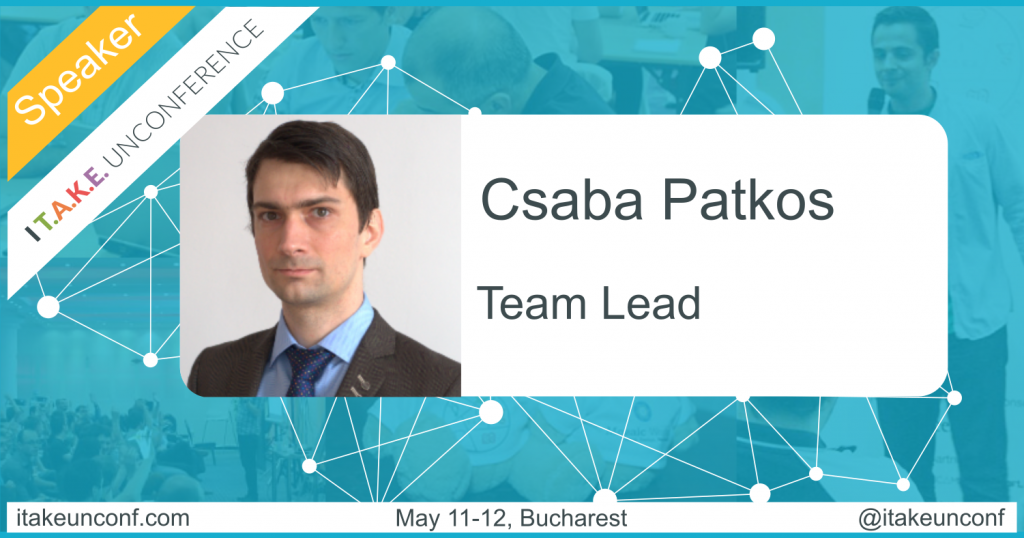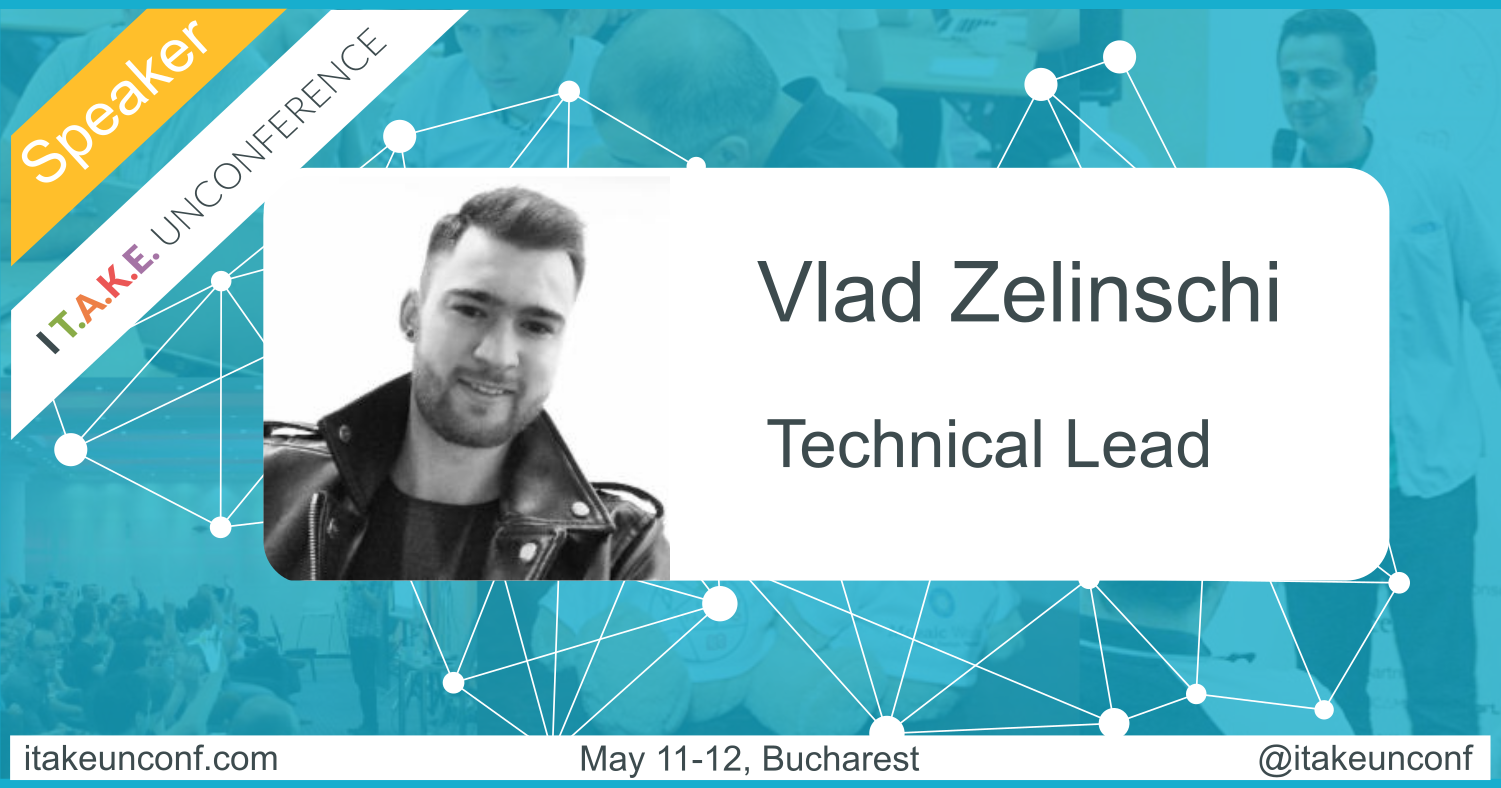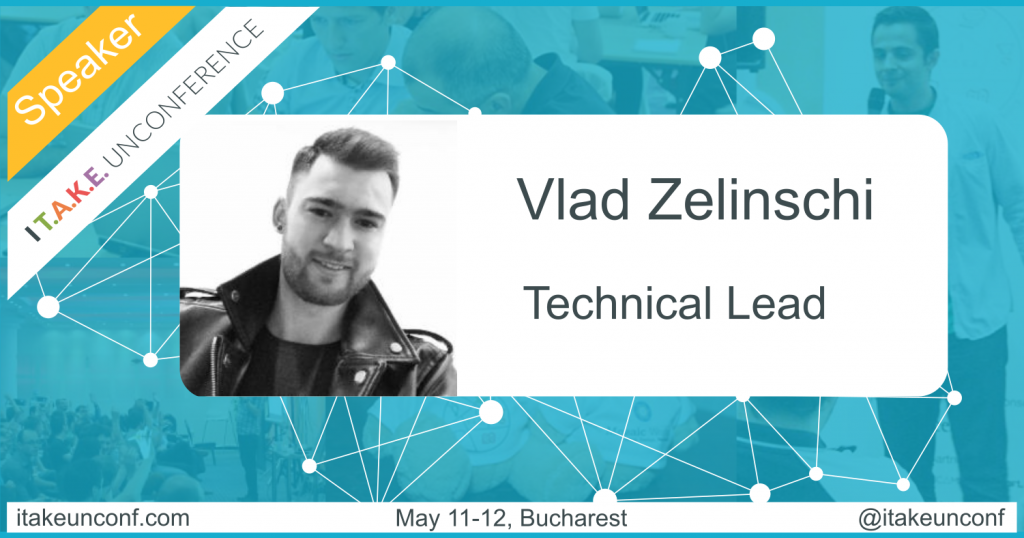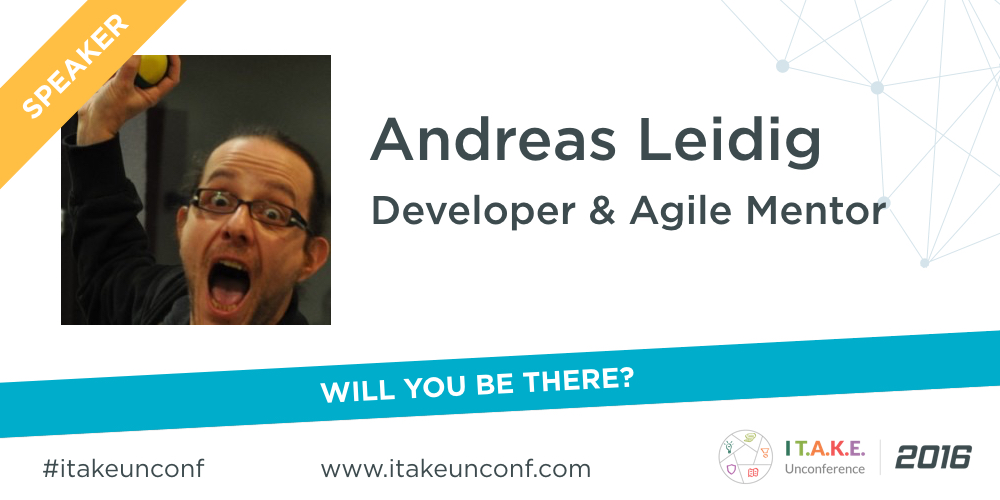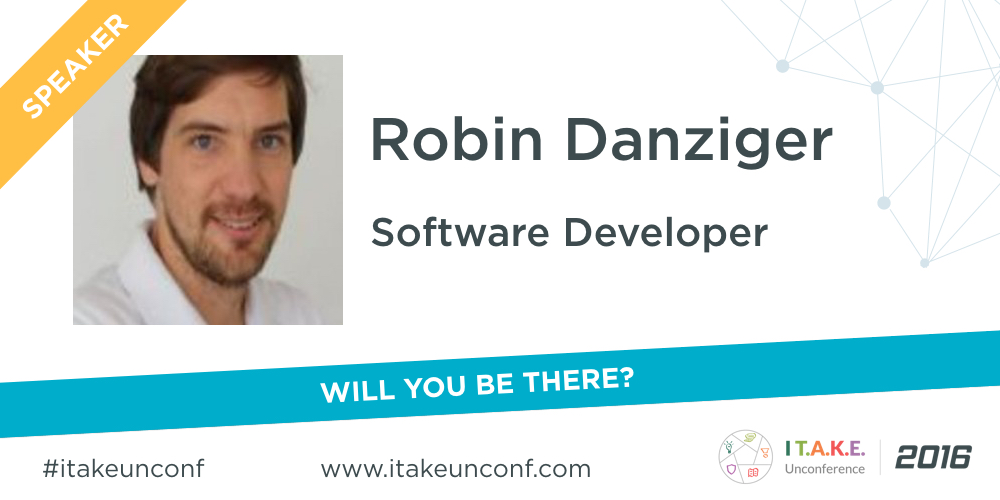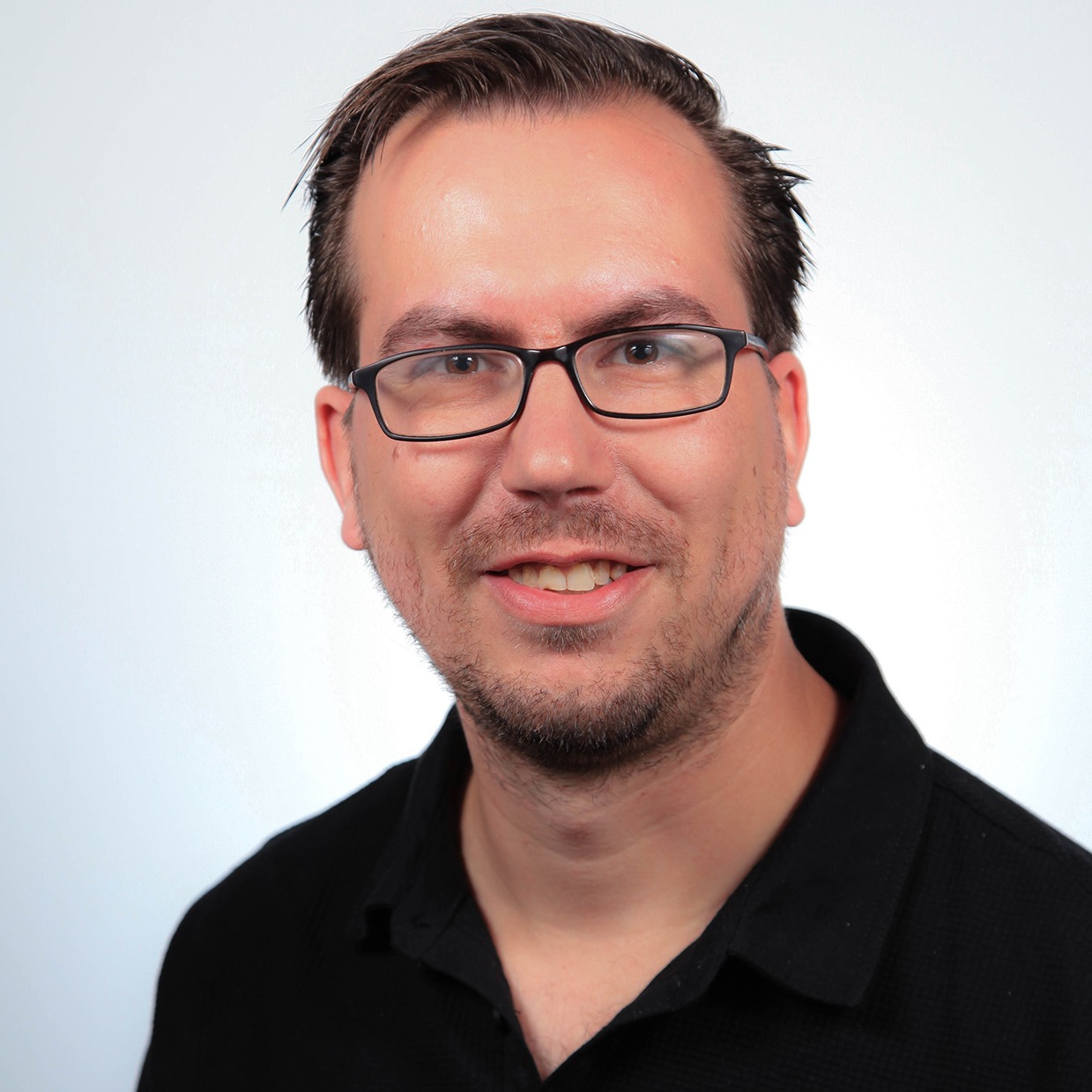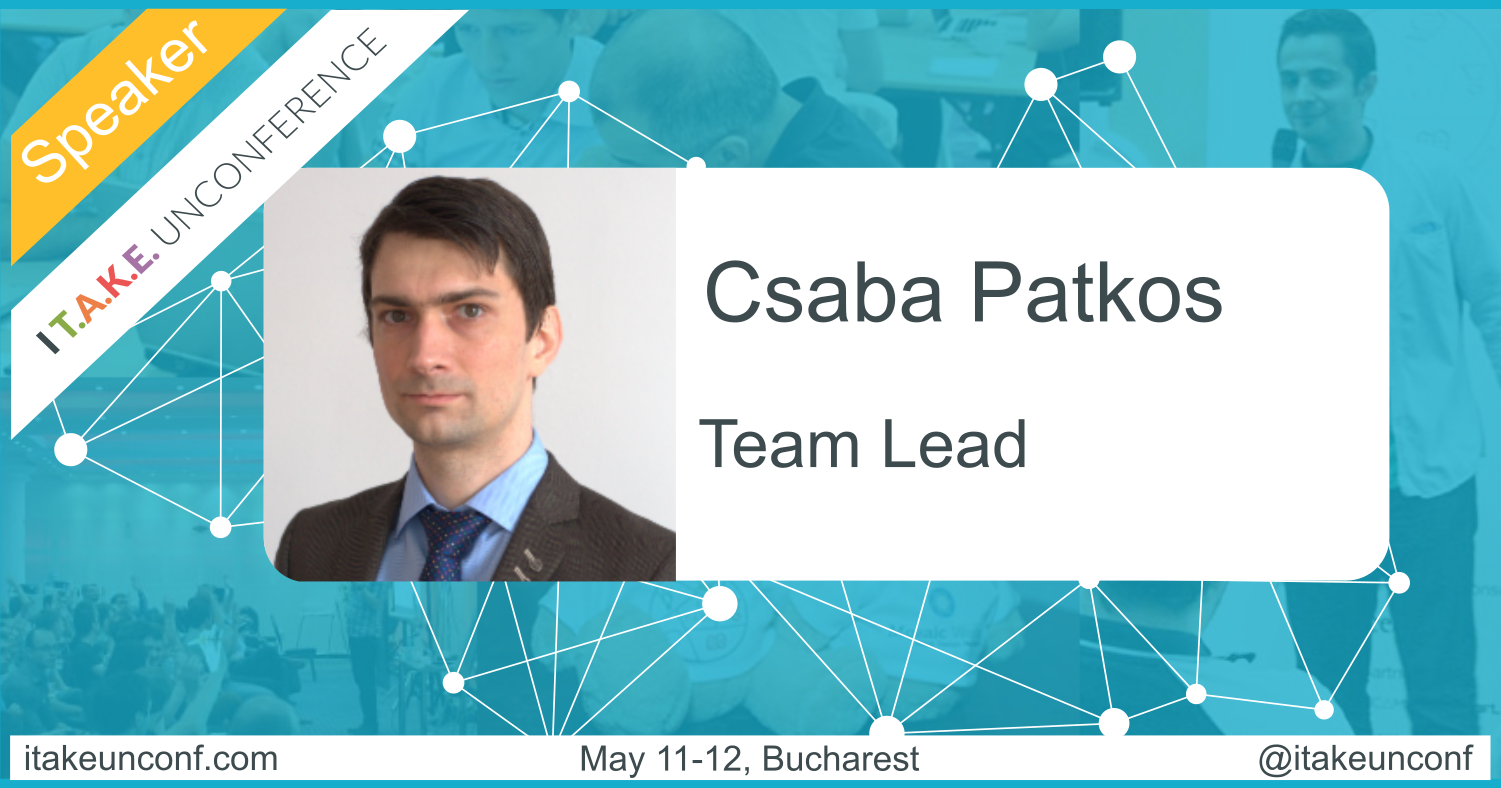
Enjoy the following series of interviews with the speakers, top-notch software crafters from across Europe, joining I T.A.K.E Unconference, Bucharest, 11-12 May. Discover the lessons learned and what drives them to challenge the known path in their field.
Csaba Patkos, Team Lead Syneto, is a technical practitioner with 15 years of experience in the field. Joining #itakeunconf 2017 as speaker, he will share more in his talk about his experience of growing up as a team leader, mentor, and coach for the team he works with daily.
#1. Please share with us 5 things you did that helped you grow & become the professional you are today
- Reading … I mean a lot. 40-50 books / year are doable. They can mix in a few novels / literature as well.
- Made plans and fought to achieve them. Think about where you want to be in 6 months or 1 year and define the steps you need to take to get there.
- I love programming and software engineering. I do it daily, with dedication.
- Built some useful daily habits that are helping me to get better. For example listen to audio books when driving, daily reading, daily plan of work, etc.
- Talked to the people I admire and I used these talks as sources of inspiration. So, don’t be afraid to approach your professional idols, they are people just like you.
#2. What challenges will the participants find solutions to during your session at I T.A.K.E Unconference 2017?
√ Some people just won’t listen to you.
√ Some people just want to force their ideas on you.
√ Some people don’t care about the topic, they just pick fights with you.
√ Some people think you don’t care, even though you really do.
√ Other communication issues.
#3. Recommend for the participants 3 sources you find inspiration from and would help them better understand you
Want to join Csaba and ~300 software crafters from around Europe?
Register now for I T.A.K.E Unconference 2017!
